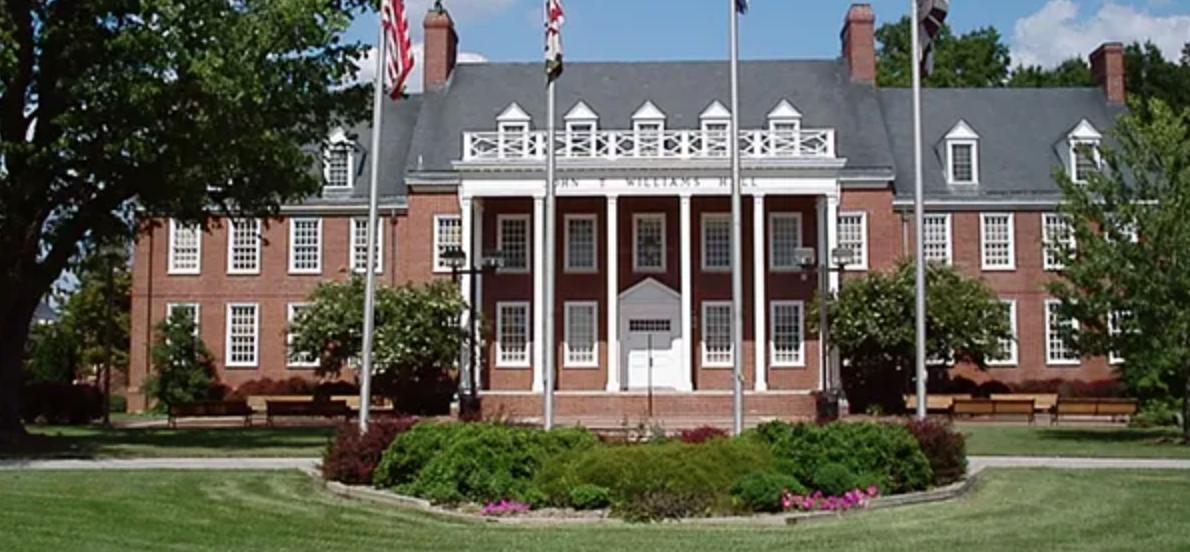The Maryland Board of Public Works on Wednesday unanimously approved the last key step for the extension of a controversial natural gas pipeline into Somerset County.
The pipeline already exists in Delaware and Wicomico County in Maryland, and the first part of the project was OK’d last month, after three hours of public testimony, to extend the pipeline by seven miles from Wicomico into Somerset County.
Now the recently approved wetlands license would allow Chesapeake Utilities Corporation, a natural gas company based in Delaware, to further extend the pipeline by 11 miles, reaching the University of Maryland Eastern Shore and the Eastern Correctional Institute, as well as residents and businesses along the line. The utility would drill beneath the Manokin River, Taylor Branch and Kings Creek.
Wednesday’s BPW hearing renewed the debates over moving towards a renewable future and achieving economic justice for Somerset County, although comments were technically limited to the project’s wetlands permit.
Comptroller Peter V.R. Franchot (D) recognized environmentalists who have raised environmental justice concerns over the project and have argued that this pipeline runs counter to the state’s goal to reduce greenhouse gas emissions by 40% by 2030. While fracking has been banned in Maryland, green groups have suggested that the state should not be agreeing to purchase potentially fracked gas for an extended period of time.
“I just want to salute the environmental advocates who disagree with us on this particular project because I think they’re right, that natural gas and fossil fuels are on their way out,” Franchot said. “And we’re going to get to a renewable future with net-zero carbon emissions.”
Last month, board members said they saw natural gas as a “bridge” fuel to cleaner renewable energy sources in the future.
But Josh Tulkin, director of Maryland’s Sierra Club, asserted that “we cannot simply make baby steps in the fight against climate change.”
“We do not have 40 to 50 years for bridge fuels,” he continued.
But Franchot said he also recognized that this pipeline was more about economic justice for Somerset County, which is one of the three counties in the state that does not have access to natural gas. The county, which is 41% Black and the poorest county in the state, has reportedly missed out on many economic opportunities because of it and deserves the same benefit from the electric grid that most other Marylanders get, Franchot said.
“I think we have to realize that that this is an incremental process we’re going through here,” Franchot continued. “I think the overall goal everyone shares, which is a renewable future, but this particular issue is economic justice and parity with the rest of the state.”
Craig N. Mathies Sr. (D), president of the Somerset County Board of Commissioners, echoed the sentiment.
“We know that it’s going to be a significant savings to the University of Maryland Eastern Shore and also to [Eastern Correctional Institute] in their fuel costs — it’s going to reduce it dramatically. And then there’s such an opportunity for… the potential of economic growth.”
Currently, the University of Maryland Eastern Shore uses fuel-oil and propane, while the Eastern Correctional Institute burns wood chips — all of which are dirtier sources of energy than natural gas.
After these recent permit approvals, the state is committing to a 10-year contract with Chesapeake Utilities Corporation for purchasing the fuel and the capital costs associated with it, Charles Glass, acting director and chairman of the Maryland Environmental Service, told board members.
By Elizabeth Shwe



Write a Letter to the Editor on this Article
We encourage readers to offer their point of view on this article by submitting the following form. Editing is sometimes necessary and is done at the discretion of the editorial staff.